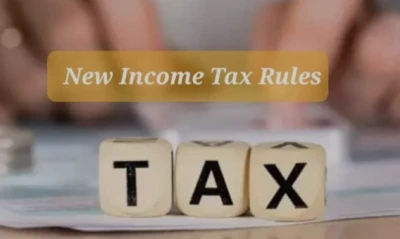As the new fiscal year (FY 2024-25) commences, Bharat’s income tax regulations undergo remarkable changes aimed at simplifying tax planning and easing the burden on taxpayers. These alterations, slated for implementation from April 1, 2024, introduce key adjustments to the existing system.
One notable change is the adoption of the New Tax Regime as the default setting. Under this regime, taxes will be automatically calculated and applied unless a taxpayer actively opts for the old tax structure.
The decision to make the new tax regime default was announced during the previous Budget (2022-23) speech by Union Finance Minister Nirmala Sitharaman. While the new system aims to streamline tax procedures, taxpayers retain the option to adhere to the old structure if preferred.
Sitharaman had proposed to raise the rebate limit from Rs 5 lakh to Rs 7 lakh in the new tax regime. Therefore, if an individual has opted for the new tax regime, he or she will not be required to pay any tax up to an annual income of Rs 7 lakh.
The implementation of the new tax regime offers many benefits for taxpayers Taxpayers no longer need to maintain a track record of travel tickets and rent receipts.
The changes aim to simplify tax planning. The basic exemption limit has been elevated from ₹2.5 lakhs to ₹3 lakhs.
This makes the novel tax regime more appealing. The surcharge rate for individuals with income exceeding ₹5 crore has decreased from 37 per cent to 25 per cent. This reduced surcharge rate applies only to those who choose the new tax regime.

















